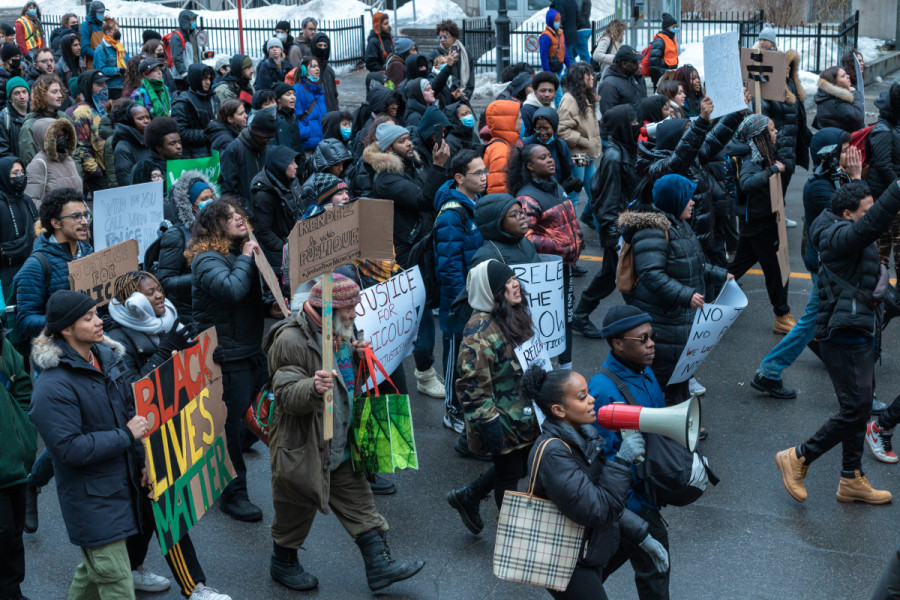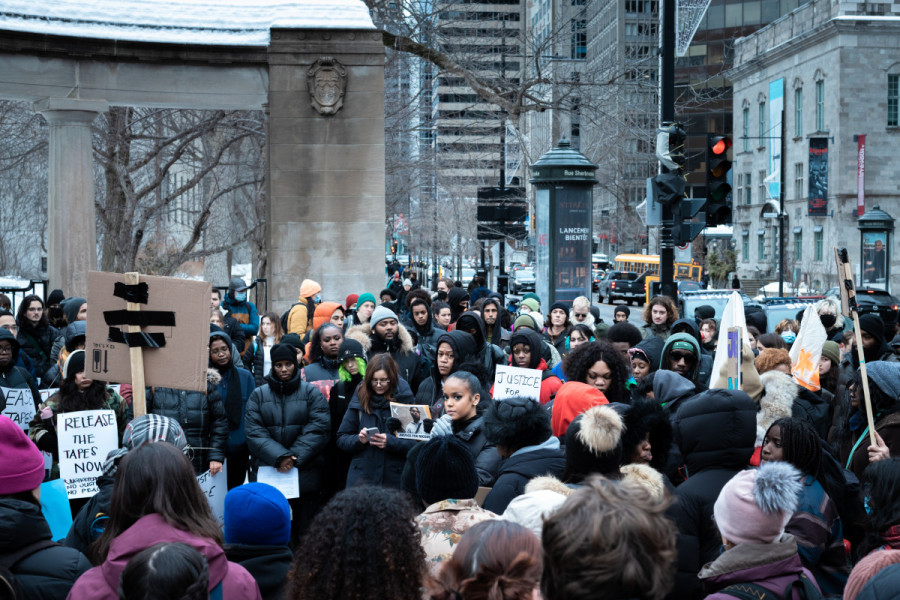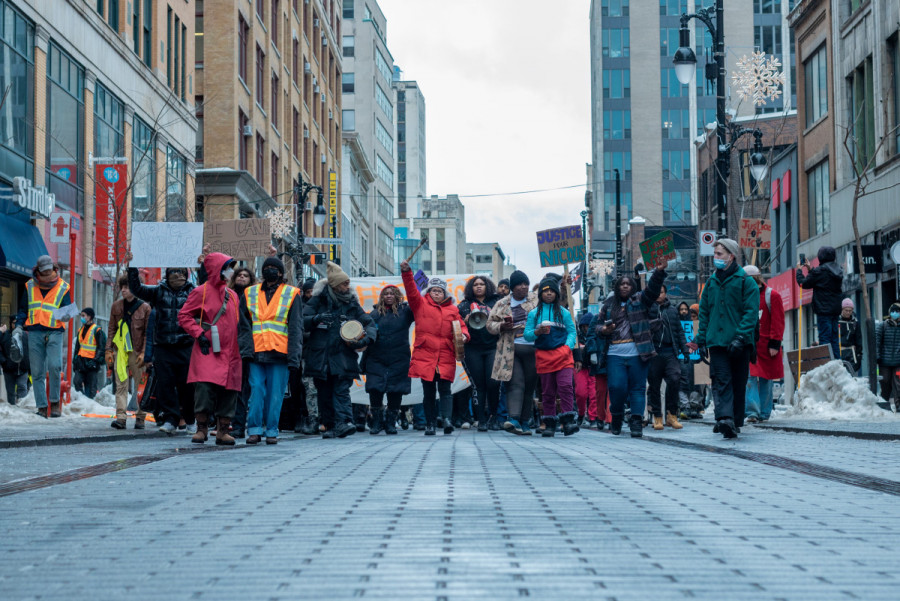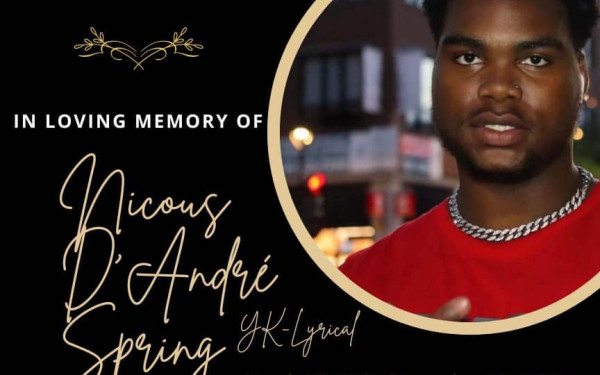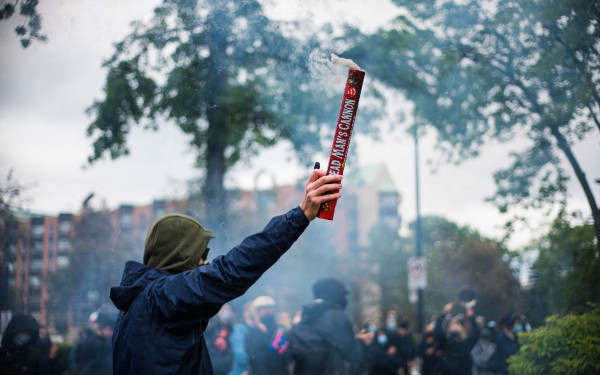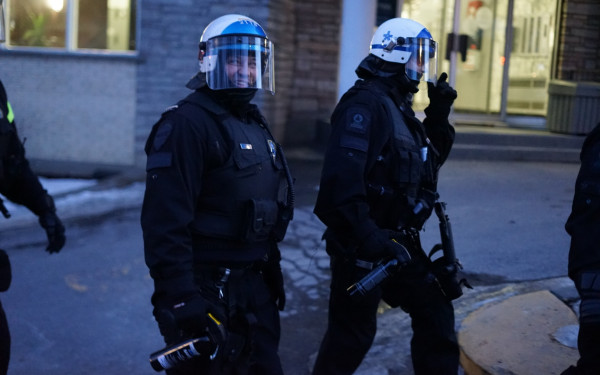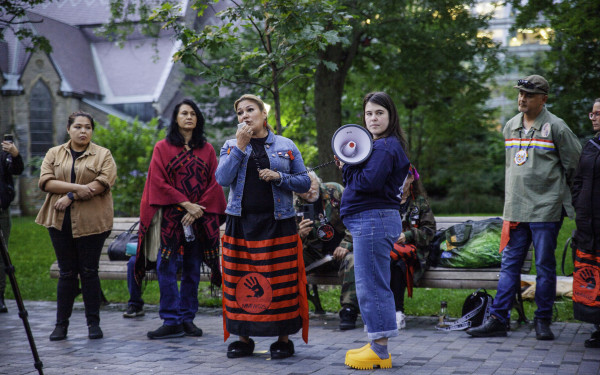Hundreds of Montrealers Demand Justice for Nicous
The Fight for Nicous D’André Spring Continues as Family Still Waits for Answers
Zibz Black Current saw within Nicous D’André Spring “a bright fire.”
“Every time I saw him, we shook hands, and he would always squeeze the hardest,” said Current, who knew Spring through the Jeunesse 2000 program in Notre-Dame-de-Grâce.
The fire he saw was fueled by Spring’s love for boxing, poetry, and music. “If you read some of his poems, you’d see how heartfelt he was,” Current shared with a smile. His friends and family knew him as a kind person who was always willing to help those in need. He was “a big teddy bear,” full of love to give, according to Current.
Quoted as “a young Muhammad Ali,” Current believed Spring could have gone on to be the next Basquiat. The young man had been steadily working on his YouTube channel, releasing music under the name “YK Lyrical.”
“His good soul was snuffed out,” said Current.
“We need the names of the officers who did this to our brother. We need them to be held accountable for what they did. Prosecution!” — Sarafina Dennie
Hundreds of people gathered at McGill’s Roddick Gates on the chilly afternoon of Feb. 10 to demand justice for Nicous D’André Spring, killed on Dec. 25, 2022. He was 21 years old.
Arrested for allegedly assaulting a police officer, Spring was held on bail and was set to be released Dec. 23. Instead, over the night of Dec. 24, he was pepper-sprayed and had a spit-hood put on him.
He became unresponsive, was sent to a hospital, and died on Dec. 25. Various speakers shared their anger towards the illegal detention of Spring in Montreal’s Bordeaux prison.
“[Change] isn’t in the system’s interest. It is built on the precarity of Black life. There has to be somebody at the bottom,” said Nanre Nafziger, a member of the Justice for Nicous Action Committee, who organized the march. “Every Black mother dreads the day she’ll get a phone call from an unknown number, [telling] her that her son has been lost or murdered.”
In its 2021-2022 report, the Office of the Correctional Investigator of Canada pointed out that Black inmates were more likely to “be labelled or treated like gang members,” were “targeted by staff and more frequently written up for institutional charges” and “had unequal treatment in accessing health care, personal care items, favourable employment and early community release options.”
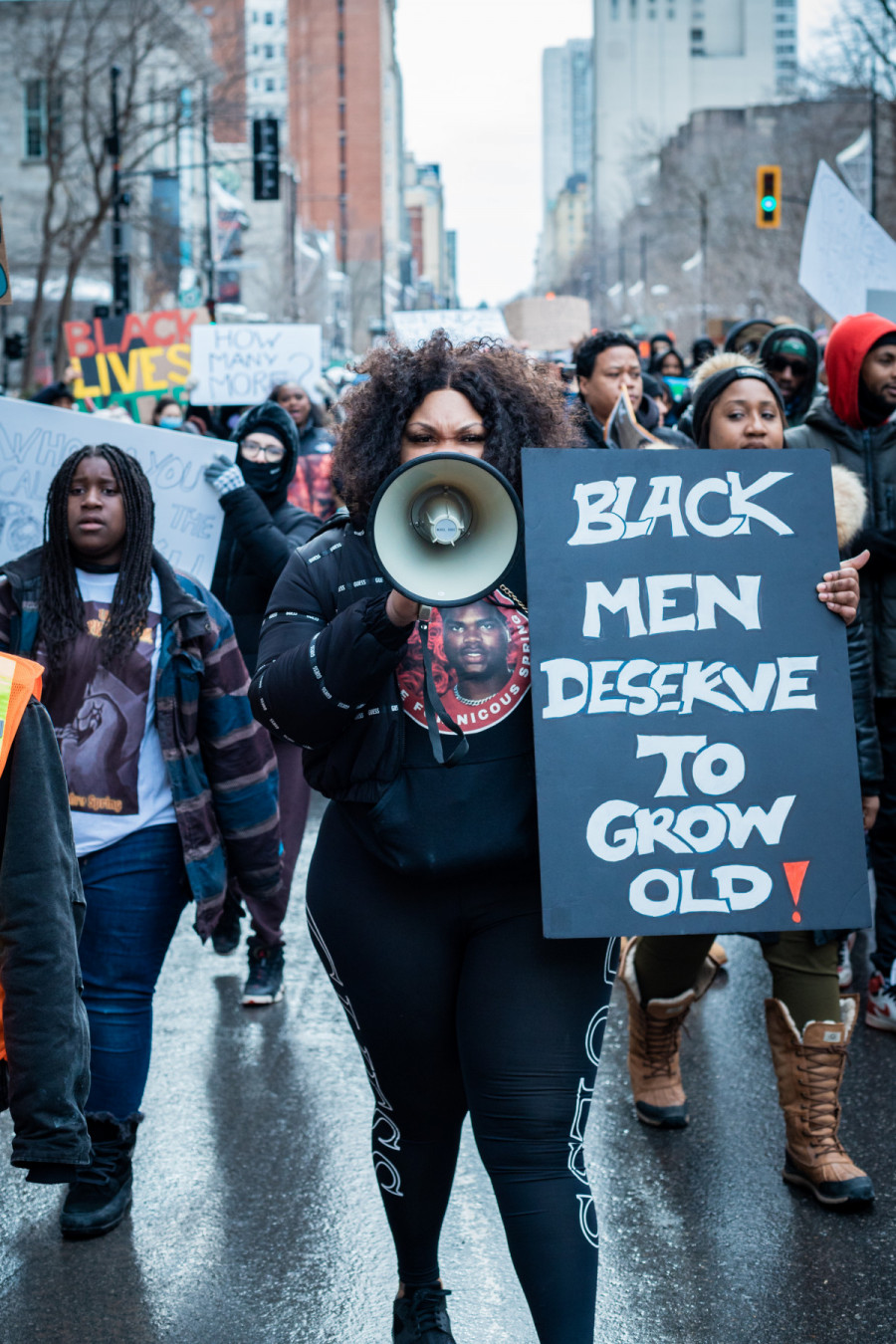
The report called for eight different recommendations to help respond to the issue, such as a wider diversity of staff and the implementation of a case-by-case strategy.
Nafziger believes the proposals aren’t enough.
“People ask ‘how can there be no police?’ But in many white neighbourhoods, there are no police” said Nafziger. “These systems are only necessary because of the inequality. If you have a fair society, you won’t see the crime.”
She added that with equal education opportunities, healthcare access, youth services and economic stability in racialized communities, the abolition of police is feasible.
The crowd left the gates and marched towards the Palais de justice de Montréal chanting “Justice for Nicous” and “Black Lives Matter.”
Through the cold wind, Sarafina Dennie, Nicous D’André Spring’s sister, stood at the front of the march. Using her booming voice, she made clear demands for the release of the video footage of the events that led to Spring’s death.
“We need the names of the officers who did this to our brother. We need them to be held accountable for what they did. Prosecution!” said Dennie in a speech to the crowd, while at the foot of the Palais de justice.
“We think that we’re protected, that the police are here to serve us, that the system is there for us, but where is the justice when it comes to us as human beings?” — Alacia Reid
Alacia Reid, who stood close to Sarafina Dennie, shouted the calls for justice in unison with her.
Reid learned of her friend’s death on Christmas morning.
“He was gruesomely killed for no apparent reason. I’m here to help give Nicous a voice, as well as to everyone else who they have done gruesome things to,” said Reid. “We think that we’re protected, that the police are here to serve us, that the system is there for us, but where is the justice when it comes to us as human beings?”
The march ended in hugs shared between community members, bidding each other safe travels back home.


